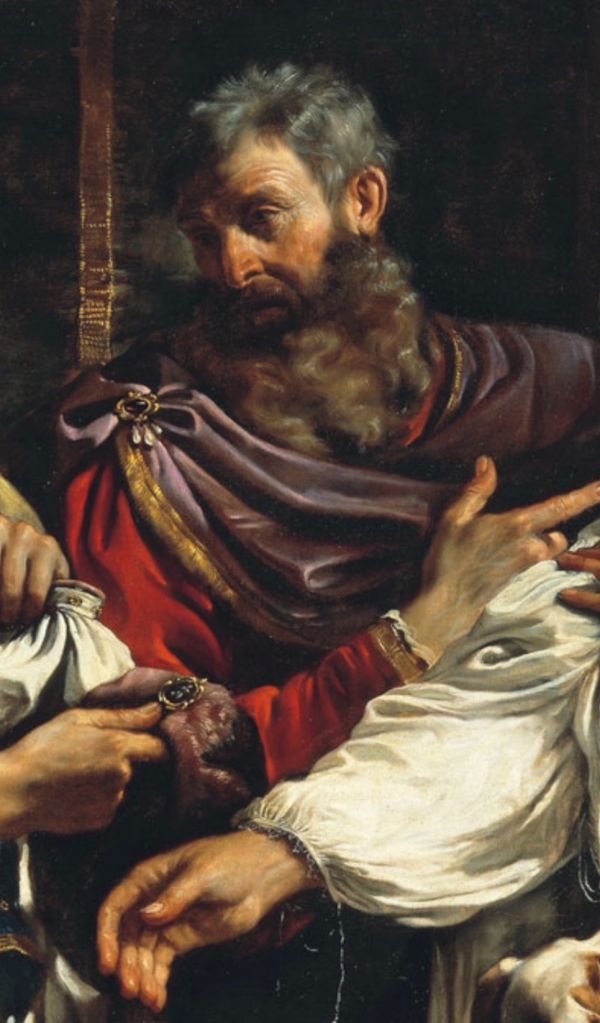(Lk 15:1-3.11-32)
Love is a Feast, not an exchange of favors. So we aren’t marked for life, because the Father knows that our paradoxical escapes are dictated by a need (or legitimate fixation): to breathe.
And we must be proud of ourselves.
Inside our “Home” there is no freedom, because older brothers are sometimes unbearable.
They impose performance, they understand everything, and check for any comma; they imagine that everyone should receive a salary according to merit, rhythm, ability, effort, overtime hours, and «Yessir».
Grim about everything, they whine only because they imagine that one has to ask permission from authority even to rejoice in life and make noise for free. Their “duty and obey” kills Tenderness.
The Father, on the other hand, prevents us from feeling degraded, so He does not want to listen to the list of transgressions that the "pure" doesn’t know but imagines and foolishly spells out, because he represses them inside and in secret cultivates [identifying them with pleasure!].
He does not want us to make the mistake that ruins the whole of life and not just a few stretches of the path: to feel like wage earners. Thus He educates to let good prevail over evil, without demeaning anyone.
Everywhere we find a master who exploits. And even if we only return Home out of calculation, God prevents us from getting down on our knees.
We recite the Lord's Prayer standing: with Him we are always valiant face to face, and He likes «symphonies and choirs».
Tao Tê Ching (x) says: «Preserve the One by abiding in the two souls: are you capable of not making them separate?».
Contradiction inhabits each of us and the merciful Father doesn’t call anyone to wear inner or outer straitjackets according to perfection.
He doesn’t intend to absorb the life even of our subtleties and nuances, nor to reduce the coexistence of faces.
He knows that the evolution of each is combined with a varied experiential language, capable at its time of combining ancient wealth, personal inclinations, even momentary ones, and unexpected novelties.
If we deny the soul’s universe and the multitude of its antinomies, idioms, and co-present characters - like the two sons both contradictory but ultimately complementary - we would never have all the prospects for a growth in life and for the evolution in expressive strength of the Faith.
In the Artwork of the Spirit, Richness’ Opportunities for all, and... no one humiliated.
Everyone now free. How wonderful, such a monstrance! A living Body of Christ that smells of Sharing!
This is the beautiful and royal awareness that smoothes out and makes the content of the Announcement credible (vv.1-2).
Henceforth, the distinction ‘believers and non-believers’ will be much deeper than between the pure and the impure: a whole different caliber - and the beginning of a life as saved people.
Christ also calls, welcomes and redeems the discombobulated son and the precise one (in us), i.e. the more rubricistic - or worn-out - side of our personality.
Even our unbearable or rightly hated character (the rigid one and the distracted one).
He will even make them flourish: they will become indispensable and winning aspects of the future testimony.
Tao Tê Ching [xlv] says: «Great straightness is like sinuosity, great skill is like ineptitude, great eloquence is like stammering».
To internalize and live the message:
When do I take myself hypocritical and close-hearted? When do I realize instead of being the protagonist of what the Father shares?
[Saturday 2nd wk. in Lent, March 22, 2025]












